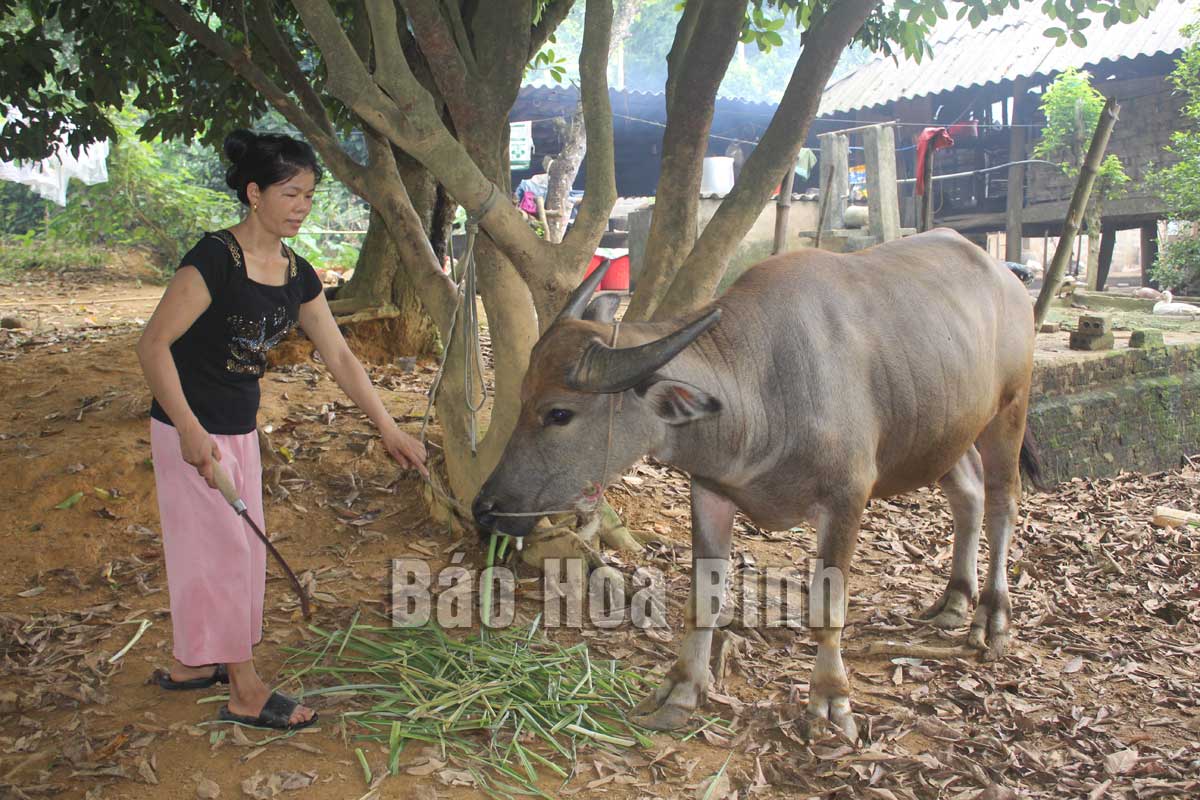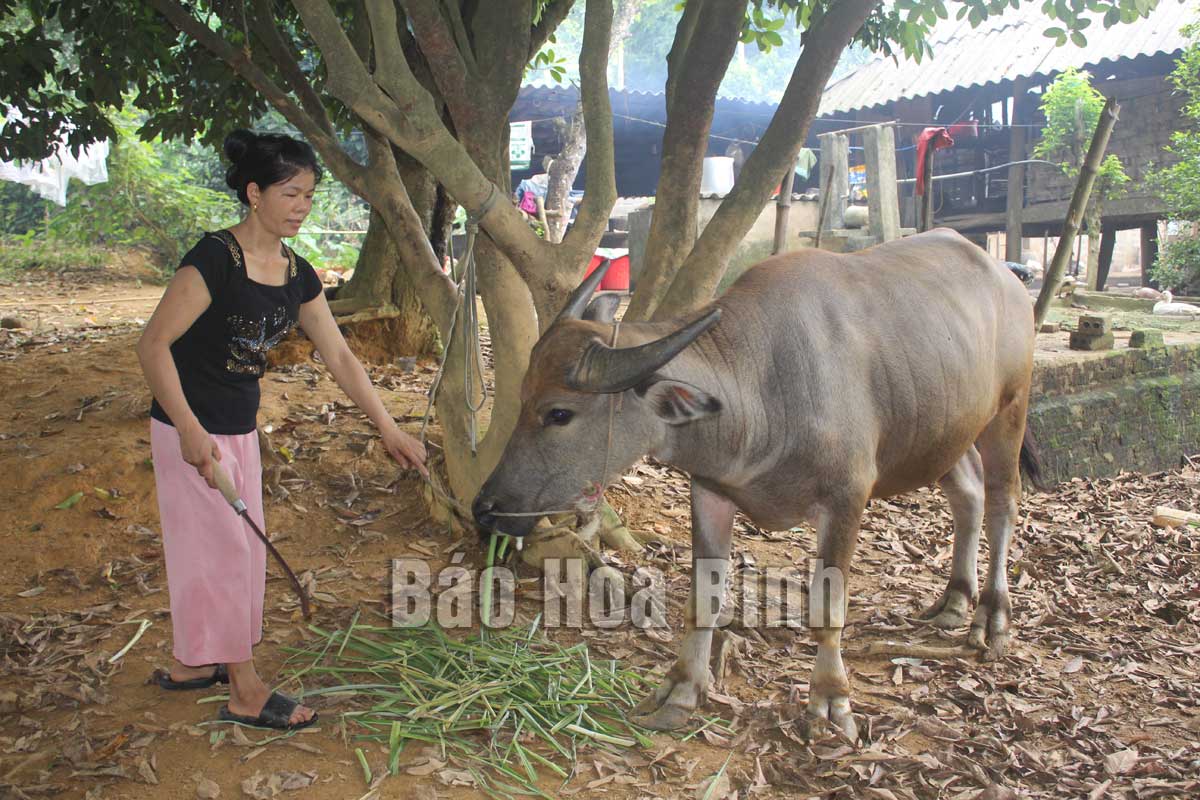
(HBO) - Preferential credit policy has accompanied poor and policy beneficiaries households in Hoa Binh, a mountainous province with many difficulties, for decades. It has become an important driving force to help the poor gradually overcome challenges, making steady progress in poverty reduction and hunger eradication.
Photo: Thanks to social policy loans, the
family of Bui Thi Hoa, residing in Kho hamlet, Chi Dao commune (Lac Son
district) has invested in animal husbandry and escape poverty.
Chi Dao is a remote commune of Lac Son district where people's living
conditions are facing difficulty. Poor and near-poor households account for
over 40 percent of the commune's population.
Quach Cong Thai, Chairman of the commune People's Committee, emphasised that
social policy loan is one of the most important driving forces in the commune's
hunger eradication and poverty reduction.
In recent years, thanks to access to social policy loans, many poor, near-poor
households and social beneficiary policy families have raised buffaloes and
cows, pigs and chickens, and growing doi (Talauma), also known asMichelia
Tonkinensis,for economic development and increase their income.
Up to now, the total outstanding loans under social policy credit programmes in
the commune has reached over 11 billion VND with over 500 households receiving
loans. According to the chairman of the commune People's Committee, as many
people lost their jobs due to the COVID-19 pandemic, the timely disbursement of
policy capital has helped reduce difficulties for them.
Not only people in Chi Dao commune but also those in other localities have
benefit from social policy loans.
The COVID-19 pandemic has affected all aspects of people’s social life over the
past two years, however, the Vietnam Bank for Social Policies’ branch in Hoa
Binh province has strived to mobilise sources and provide loans for poor
households and other policy beneficiaries.
Nguyen Minh Hung, Director of the branch said the total outstanding loan
balance from policy credit programmes in the province has surpassed 3.5
trillion VND (over 153.8 million USD), with over 123,000 needy households as
borrowers.
From the beginning of the year until now, the loan turnover has reached over
896 billion VND, helping over 25,000 customers access loans for production,
business, and social security.
Through preferential credit policy, nearly 2,000 workers got jobs and over
12,000 clean water and environmental sanitation works were constructed. As many
as 19 houses were built, 39 workers were able to go abroad for working, and 31
students and students in difficult circumstances could continue study thanks to
such loans.
Social policy loans have continued to make practical contributions to
sustainable poverty reduction, acting as a driving force to accelerate the
progress of the new-style rural development programme as well as to limit shark
loans in the province./.
The emulation movement "Hoa Binh joining hands to build new-style rural areas” has been widely spreading, becoming a driving force that motivates the localities to renew rural landscapes and improve the material and spiritual lives of the residents. In this movement, the people play a central role-both as the main implementers and direct beneficiaries of its outcomes.
In response to the global digital revolution, Hoa Binh Newspaper is transforming itself into a modern and multi-platform media hub, blending cutting-edge technology with a restructured newsroom and a new generation of tech-savvy journalists.
Hoa Binh province’s Association of the Elderly recently held a conference to review the project on expanding the inter-generation self-help club model until 2025.
In a move to implement Resolution No. 57-NQ/TW, issued on December 22, 2024 by the Politburo, which targets breakthroughs in science-technology development, innovation, and digital transformation, the Hoa Binh provincial Department of Health has issued a plan to roll out the "Digital Literacy for All” campaign within the local health sector.
An Nghia Commune (Lạc Sơn District) is one of the communes that achieved the tha standard of the national new rural area in 2018. Entering a new development phase, the commune is now trying to meet the criteria for the advanced new rural development. With the strong political will and the public consensus, the commune is gradually overcoming the challenges to reach this goal, aiming for the sustainable development.



